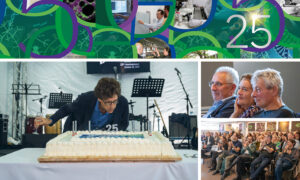
Visualising Life: The EMBL Lautenschläger summer school returns to Heidelberg
The EMBL Lautenschläger summer school introduced students from a range of scientific backgrounds to interdisciplinary life science research
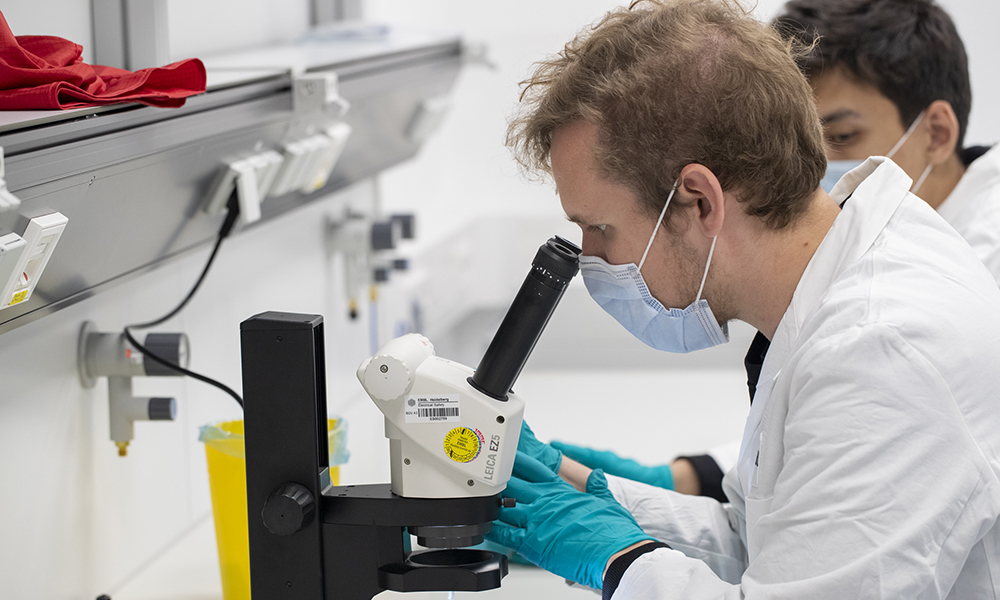
If we had peeked inside the brand new EMBL Imaging Centre on a day early this July, an interesting sight would have met our eyes – a group of students representing over a dozen nationalities, working together to build a fluorescence microscope from scratch. They had come from a variety of scientific backgrounds – physics, mathematics, computer science, engineering, and chemistry, among others. What they all had in common is a burning curiosity about interdisciplinary biological research.
Over the next couple of weeks, they would go on not only to build their own microscope and use it to image biological samples, but also to gain an introduction to the world of cutting-edge life science research.
The students were participants in the EMBL Lautenschläger summer school, which returned this summer after a two-year hiatus due to the pandemic. Following in the footsteps of its previous edition in 2019, the school introduced students with non-biology backgrounds to the dynamic multidisciplinary world of current biology research.
“Modern biology is increasingly becoming an interdisciplinary science,” said Aissam Ikmi, EMBL Group Leader and a course organiser. “To attract students from non-traditional backgrounds (e.g. mathematicians, engineers, and computational scientists) to the life sciences, we need to invest in their education and expose them to modern biology, an opportunity provided by the summer school.”
The course also exposed participants to EMBL’s wide range of research activities. “We wanted to raise the visibility of EMBL among non-biology students,” said Robert Prevedel, another EMBL Group Leader and course organiser. “We felt a dedicated summer school could introduce students from these backgrounds to the fascinating research done here at EMBL.”
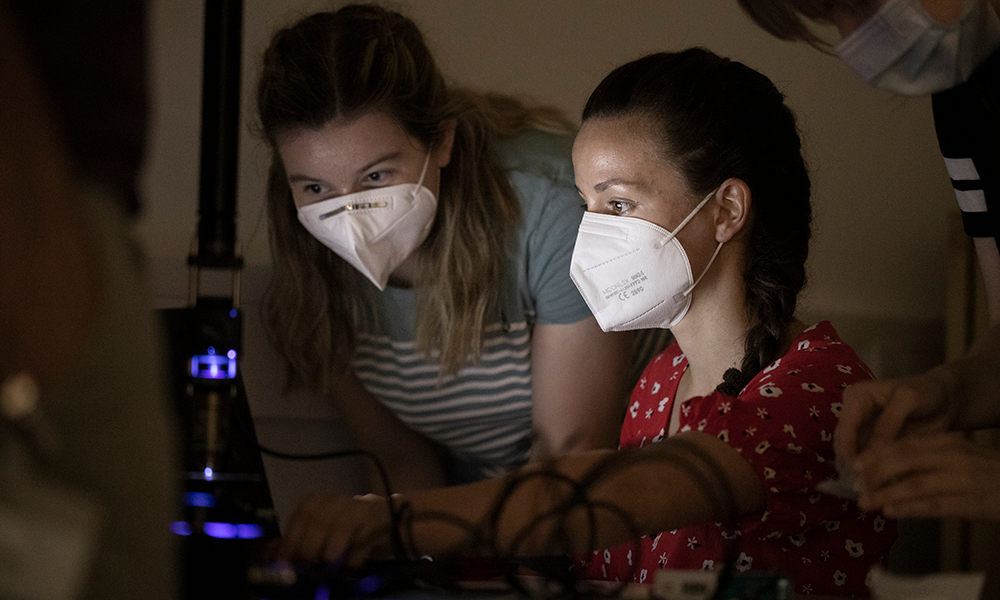
A crash course in microscopy
The Summer School was made possible thanks to substantial funding from the Manfred Lautenschläger-Stiftung and further generous donations. The 20 participants, comprising a mix of bachelor’s and master’s students, represented 13 different nationalities, and spent two weeks in July at EMBL’s new Imaging Centre for a crash course in the multifaceted world of biological imaging.
There, they attended lectures on a range of topics in modern biology, followed by practical sessions where they learned how to build a microscope, visualised live and fixed biological samples, and analysed the data obtained.
“The lectures introduced us to a broad range of ideas, while the practicals allowed us to tinker and experiment, with enough guidance to avoid being overwhelmed,” said Jelena Zaninović, one of the participants of the course, currently studying mathematics at the University of Zagreb, Croatia. “The entire experience got me excited about science and helped me see how different disciplines can come together to solve a problem.”
Because of their varied backgrounds, the participants also brought a unique mix of knowledge and perspectives, giving rise to many interesting discussions and innovative approaches to problem-solving.
“The participants were extremely open-minded and actually very knowledgeable beyond their fields of studies,” said Timo Zimmermann, an EMBL Imaging Centre Team Leader and another course organiser. “I was very impressed by the autonomous work they did on a side project, which they presented in addition to the other course activities.”
Anna Kreshuk, also an EMBL Group Leader and course organiser, agreed, ”It was great to see their curiosity and receptiveness to new fields and approaches. Some of the students formed ad hoc groups to work on self-driven, collaborative side projects; others went much deeper than our original practical plans…It was a really fun two weeks of science.”
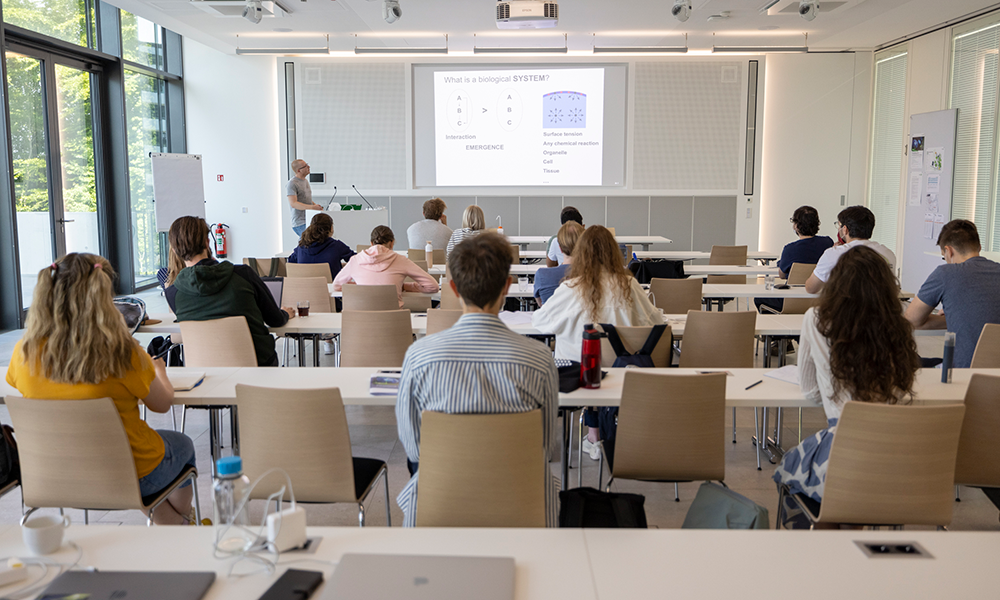
A future in biological research
The organisers hoped that the course would not only introduce its participants to the world of molecular biology but also encourage them to pursue careers in life science research. In this, as in many of its other goals, the summer school appears to have been successful. “This school gave me a new perspective on interdisciplinary science and has given me so many new choices to consider for my future career,” said Jakob Mäeots, a course participant, currently studying genetic engineering at the University of Tartu, Estonia.
“Although I had a good mathematics and physics background before participating in this summer camp, I really didn’t have a clear understanding of how biological concepts fit in with physics theories,” said Sachin Chandrasekara, another course participant, currently a student at the University of Ruhuna, Sri Lanka. “I would definitely love to pursue my PhD at this laboratory and will be looking forward to applying once I complete my current degree course.”
Fellow participant, Eric Laudermann agrees. “I had an amazing time at the EMBL Lautenschläger Summer School. Not only did I learn a lot about biology and imaging, but it was also a lot of fun meeting people from many different countries and many different fields.” Laudermann is currently studying computer science at Karlsruhe Institute of Technology.
“Now that I’ve seen it first-hand, I definitely want to do a PhD at EMBL myself,” he added.
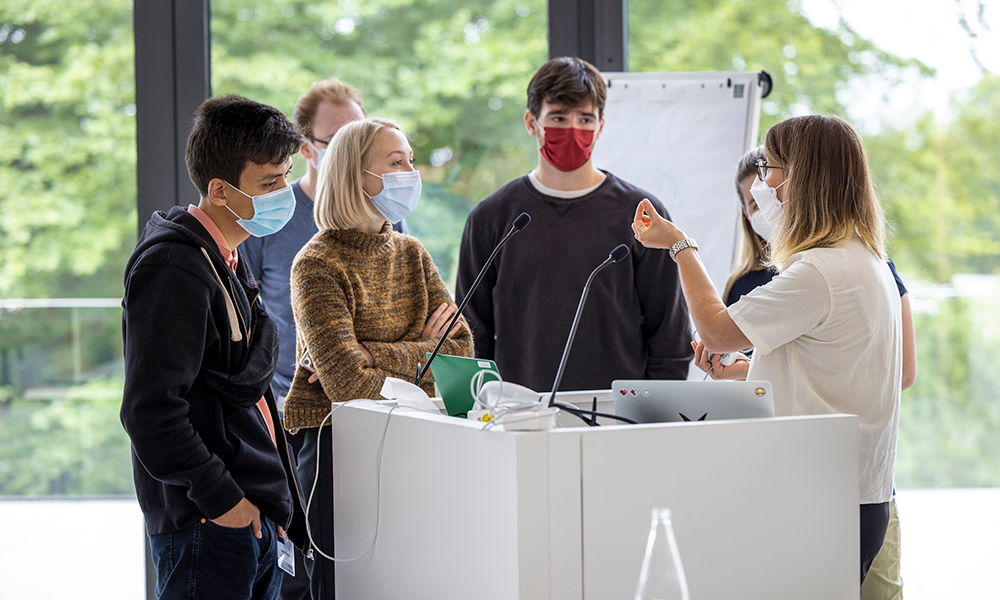
Training the trainers
The course also actively involved PhD students and postdocs in organising the course, giving them experience as trainers as well.
“This was the first time I formally taught students in a biological course, and in the process, I discovered that I really enjoy teaching.” said Soham Basu, PhD student in the Ikmi Group and one of the organisers of the course.
Fellow student organiser Anusha Gopalan, a PhD student in the Diz-Muñoz Group, agreed, “At EMBL, this is one of the rare occasions when fellows get the opportunity to deliver lectures on scientific topics, instead of a detailed presentation of their own research work. This helps us step back and reflect on the bigger picture.”
“Seeing our fellows give lectures on their own topics was a highlight of the course for me,” said Kreshuk. “They really invested time into making detailed, beautiful slides that could be well understood by students without backgrounds in biology.”
The road ahead
This was the first time the summer school has been held in the EMBL Imaging Centre, which opened to users in 2021. Training is one of its core missions, with aims to provide researchers from across Europe and beyond with a synergistic portfolio of imaging services.
The organisers of the Lautenschläger summer school plan to continue the course annually, perhaps expanding to other EMBL sites in the future.
“I came to the Summer School for knowledge, but I am taking home much more: a unique experience in multiple disciplines, cultural exchange within an international community, and new research perspectives and ideas,” said Polina Kostina, one of the participants, currently pursuing a joint degree in nanobiology at Delft University of Technology and Erasmus University Rotterdam, the Netherlands. “It certainly gives me more insights, opportunities for a future career, and connections with truly incredible people.”


